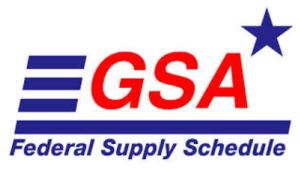I. Introduction
In the complex world of government procurement, securing a General Services Administration (GSA) contract can appear as a beacon of opportunity for businesses aiming to expand their market reach into the federal sector. These contracts are often viewed as a seal of approval from the government, signifying a trusted partnership between the federal government and a business entity. But the question remains: Are GSA contracts truly worth the investment of time, resources, and effort they require? This article aims to dissect the merits and drawbacks of GSA contracts, offering businesses a clear perspective on whether pursuing these opportunities aligns with their strategic goals.

II. What Are GSA Contracts?
GSA contracts, also known as Federal Supply Schedules (FSS) or GSA Schedules, are long-term governmentwide contracts with commercial companies that provide access to millions of commercial products and services at fair and reasonable prices to the government. The GSA serves as a centralized procurement and property management agency for the federal government, aiming to streamline the acquisition process for federal agencies while ensuring they get the best possible deal.
These contracts cover a vast array of products and services, from office supplies and furniture to IT solutions and professional services. The key benefit of GSA Schedules is that they have been pre-negotiated to comply with all federal acquisition regulations, which means agencies can purchase directly from the schedule without going through the time-consuming and complex process of issuing a separate solicitation for each purchase.
III. Advantages of GSA Contracts
One of the primary advantages of holding a GSA contract is the easier access it provides to the government marketplace. With billions of dollars spent through GSA Schedules each year, businesses have a substantial opportunity to grow their sales and expand their customer base within the federal government. The pre-negotiated terms and conditions of GSA contracts also mean that businesses can avoid the often lengthy negotiation process typically required in government contracting.
Moreover, GSA contracts offer visibility to federal agencies. Being listed on the GSA Schedule makes it easier for agencies to find and purchase from your company, as your products and services are readily available through the GSA Advantage!® online shopping and ordering system. This increased visibility can lead to more direct sales opportunities and the potential for long-term business relationships with various government agencies.
Another significant advantage is the potential for long-term contracts, which can last up to 20 years, including the base period and option periods. This long-term stability can be incredibly beneficial for business planning and growth strategies, providing a steady stream of income and the opportunity to build lasting relationships with government customers.
IV. Challenges and Considerations
While the advantages of GSA contracts are compelling, it’s crucial to weigh them against the challenges and considerations that come with pursuing and managing these contracts. One of the primary hurdles is the application process itself, which is known for being meticulous and time-consuming. Businesses must provide detailed information about their products, services, pricing, and corporate practices, all of which must comply with federal regulations. This process can take several months to complete, requiring a significant investment of time and resources.
Another consideration is the competition within the GSA Schedule. With thousands of companies listed across various schedules, standing out to federal buyers can be challenging. Businesses must not only secure a place on the schedule but also actively market their contracts to potential government customers to ensure visibility and competitiveness.
Compliance and administrative overhead are also significant factors. GSA contract holders are subject to ongoing compliance requirements, including adhering to specific pricing policies, ensuring products and services meet government standards, and submitting regular sales reports. This requires a dedicated effort to manage the contract properly, maintain compliance, and avoid potential penalties.
Lastly, businesses must consider whether the investment in obtaining and managing a GSA contract is justified by the potential return. While GSA contracts can open doors to government business, they are not a guarantee of sales. Companies need to actively market their schedules, engage with government buyers, and often navigate additional procurement processes to win business.
V. Success Stories: Businesses Thriving with GSA Contracts
Despite the challenges, many businesses have found significant success through GSA contracts. These success stories often share common themes: strategic preparation, active marketing, and diligent contract management.
For instance, a small IT services company leveraged its GSA Schedule to secure contracts with multiple federal agencies, attributing its success to targeted marketing efforts and the strategic use of GSA’s eBuy platform to respond to government RFQs (Requests for Quotations).
Another example is a furniture supplier that expanded its business nationally by offering a unique range of products that met the specific needs of government offices, highlighting the importance of understanding the government market and tailoring offerings accordingly.
These stories underscore the potential for GSA contracts to serve as a powerful tool for business growth, provided that companies approach them with a strategic mindset, invest in understanding the government procurement process, and commit to ongoing contract management and marketing efforts.
VI. Evaluating Your Business’s Fit for GSA Contracts
Before diving into the GSA Schedule pool, businesses must evaluate whether a GSA contract aligns with their strategic goals, capabilities, and resources. Key criteria to consider include:
- Product/Service Demand: Is there a demand within the government for your products or services?
- Compliance and Capability: Can your business meet the compliance requirements and manage the administrative overhead of a GSA contract?
- Market Differentiation: Does your business offer something unique or superior that can stand out in the competitive GSA marketplace?
- Resource Availability: Do you have the necessary resources to invest in the application process, contract management, and marketing to government buyers?
VII. Alternatives to GSA Contracts
For businesses considering government contracts but unsure if GSA Schedules are the right fit, there are several alternatives worth exploring. Each comes with its own set of benefits and challenges, and the best choice depends on your business’s specific needs and capabilities.
- Open Market Procurements: These are traditional procurement methods where businesses bid on government solicitations published on platforms like SAM.gov. While potentially more labor-intensive, they offer opportunities to businesses not on GSA Schedules.
- Governmentwide Acquisition Contracts (GWACs): GWACs are specialized contracts for IT solutions and services that allow for a broader range of procurement activities, including access to new technologies and complex IT solutions.
- Agency-Specific Contracts: Some federal agencies issue their own contracts for goods and services unique to their operational needs. These can be lucrative opportunities for businesses with specialized offerings.
- Small Business Set-Asides: The government reserves certain contracts exclusively for small businesses, minority-owned, women-owned, veteran-owned, and other disadvantaged groups, providing a less competitive entry point into government contracting.
VIII. FAQs about GSA Contracts
- What is the difference between GSA Schedules and other government contracts?
- GSA Schedules are pre-negotiated, long-term contracts that offer a wide range of products and services to all government agencies, simplifying the buying process. Other government contracts are typically specific to one agency and require a separate bidding process.
- How long does it take to get a GSA contract approved?
- The approval process can vary, but it typically takes several months to over a year, depending on the completeness of your application and the current workload of GSA reviewers.
- Can small businesses compete effectively for GSA contracts?
- Yes, GSA encourages small business participation and offers various programs and set-asides to enhance their competitive edge in the marketplace.
- What are the ongoing compliance requirements for GSA contract holders?
- Contract holders must adhere to pricing policies, ensure product/service compliance, submit regular sales reports, and undergo periodic audits to maintain their contract status.
- How does the GSA contract renewal process work?
- GSA contracts can be renewed in five-year increments, requiring businesses to submit a renewal proposal that demonstrates their continued compliance and success in meeting government needs.
IX. Conclusion
GSA contracts offer a unique opportunity for businesses to directly engage with the federal government, providing a pathway to potentially lucrative contracts and long-term partnerships. However, they come with their own set of challenges and considerations, from the rigorous application process to the need for ongoing compliance and marketing efforts.
Businesses must carefully evaluate their capacity to meet these demands and consider whether the benefits align with their strategic goals. For those that decide to pursue a GSA contract, success stories demonstrate that with the right approach, these contracts can significantly contribute to business growth and expansion.
The decision to pursue a GSA contract is not one to be taken lightly. By thoroughly assessing the demand for your products or services within the government, your ability to meet compliance requirements, and your readiness to compete in the government marketplace, you can make an informed choice about whether a GSA contract is worth it for your business.
If you’re considering a GSA contract for your business, or if you have experiences and insights to share about navigating the GSA Schedule, we invite you to join the conversation below. Your questions and comments not only enrich our community’s knowledge but also help us all better understand the nuances of government contracting.
For businesses ready to take the next step, consulting with a team of experts can provide personalized guidance tailored to your specific needs and goals. And remember, whether you’re just starting your journey into government contracting or looking to expand your existing footprint, the key to success lies in informed decision-making and strategic planning.

Want a direct consultation? We offer a FREE 30 minute call with limited slots only! Take action today!



